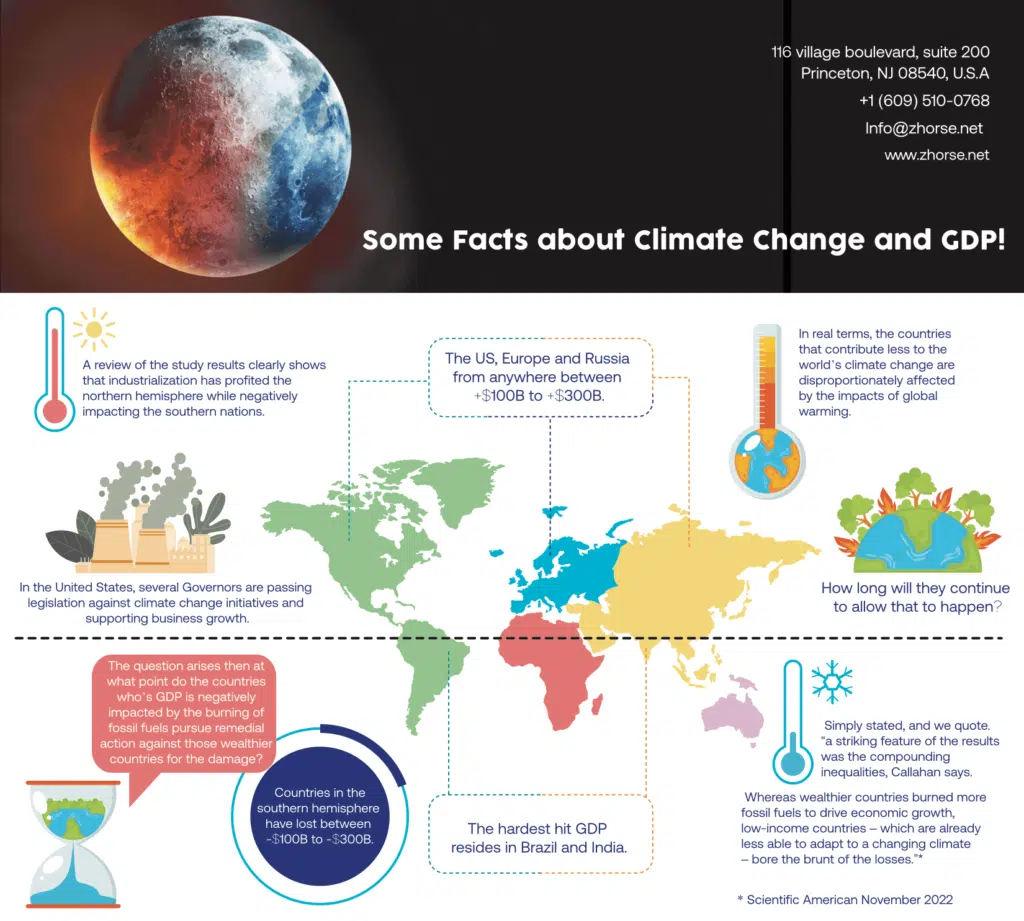
Some Facts about Climate Change and GDP!
There is continued and growing debate on the effects of climate change, more specifically emissions, on the planet. Recent debates in the UK seemed to highlight that there was only a 2% impact to the world on emissions caused by the UK, implying that climate change and its effects are negligible.
In the United States, several Governors are passing legislation against climate change initiatives and supporting business growth. In fact, the state of Wyoming is considering passing a law that prohibits the sale of new electric cars in the state. This is a clear support to the mining and energy lobbies of the state.
The debate will continue! So we decided to let science do the talking. In the November issue of Scientific American there is an interesting article on the cost of climate change. Based on studies by several scientists, the article highlights how much each nations greenhouse gas emissions have cost other nations.
The gains in GDP for Nations (1990-2014) show what one would expect. There has been a PLUS to GDP for Canada, The US, Europe and Russia from anywhere between +$100B to +$300B. At the same time, countries in the southern hemisphere have lost between -$100B to -$300B. The hardest hit GDP resides in Brazil and India but every country south of the equator shows a negative impact on GDP from emissions.

A review of the study results clearly shows that industrialization has profited the northern hemisphere while negatively impacting the southern nations. Simply stated, and we quote. “A striking feature of the results was the compounding inequalities, Callahan says. Whereas wealthier countries burned more fossil fuels to drive economic growth, low-income countries – which are already less able to adapt to a changing climate – bore the brunt of the losses.”*
In real terms, the countries that contribute less to the world’s climate change are disproportionately affected by the impacts of global warming. How long will they continue to allow that to happen?
The question arises then at what point do the countries who’s GDP is negatively impacted by the burning of fossil fuels pursue remedial action against those wealthier countries for the damage?
For more on ESG related issues check our ZHORSE.net for a series of webinars on ESG. Find out how you can improve processes in risk management to positively impact ESG risks.
* Scientific American November 2022

(800) 519-9078
New Jersey
116 Village Boulevard, Suite 200
Princeton, NJ 08540
(800) 519-9078

